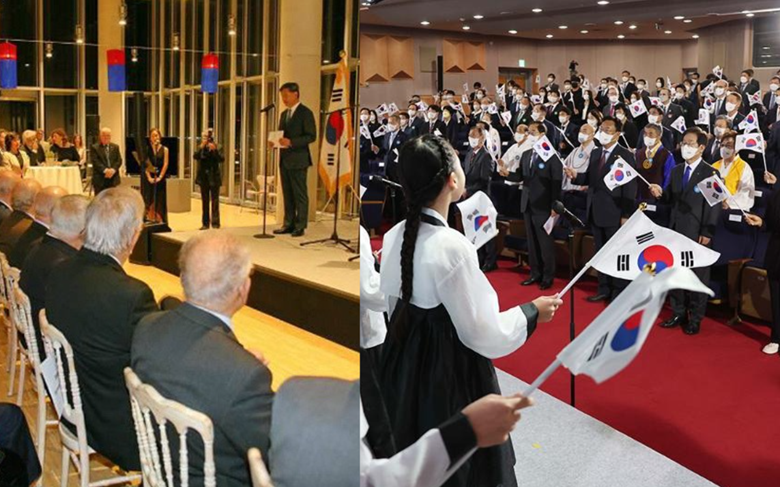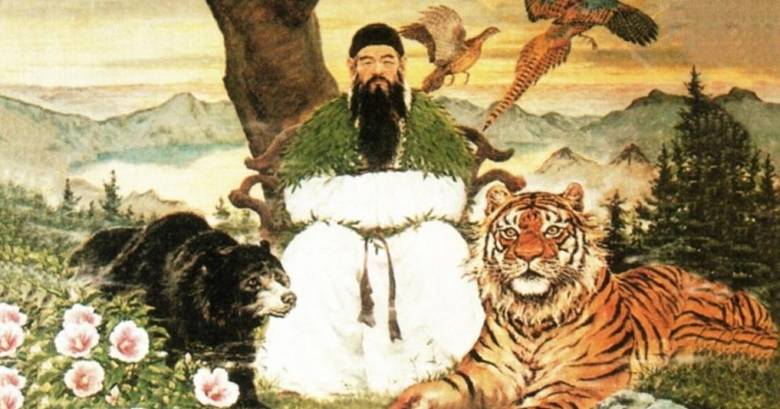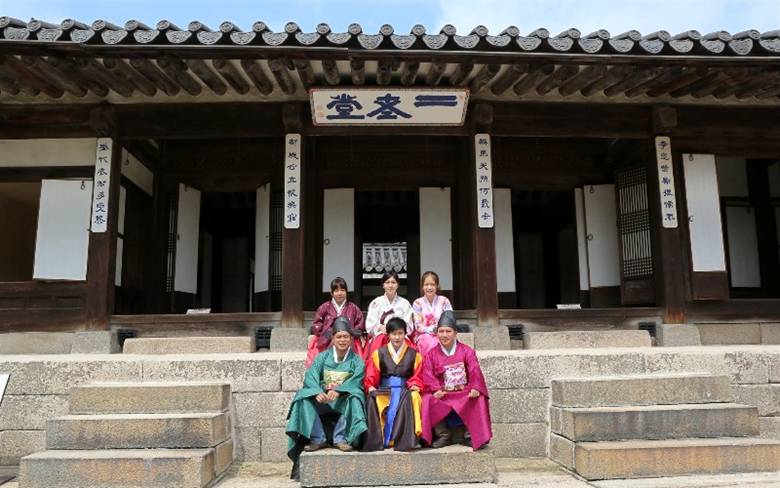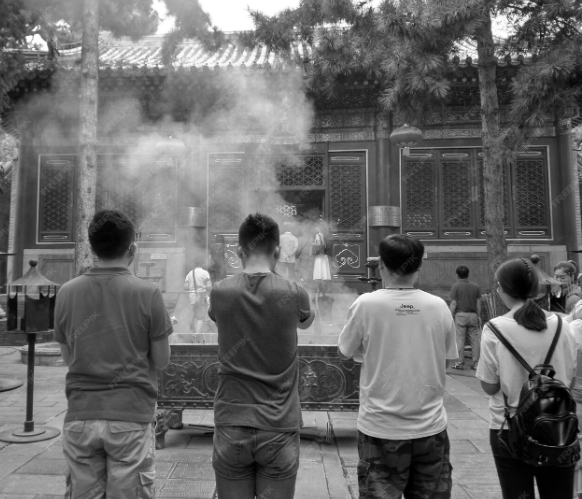The Republic of Korea, a nation known for its vibrant culture and technological prowess, annually observes National Foundation Day, or Gaecheonjeol (개천절). Celebrated on October 3rd, this significant public holiday commemorates the legendary founding of Gojoseon, the first Korean kingdom, by Dangun Wanggeom in 2333 BCE. The name "Gaecheonjeol" itself beautifully encapsulates its meaning: "Gaecheon" signifies "the sky opening," referencing the descent of Hwanung, Dangun's father, from heaven to establish a human world, while "jeol" denotes a national holiday. This day is a profound reminder of the nation's ancient roots and a cornerstone of its identity, celebrated across the country with a blend of traditional respect and modern reflection.

Government officials perform a traditional reverence ceremony (Jesa or Jerye) at an official hall in Seoul on October 3rd, commemorating National Foundation Day (Gaecheonjeol) and honoring Dangun Wanggeom. (Source: Korea.net)
Gaecheonjeol's 'why' lies beyond a historical date; it is the spirit of Hongik Ingan (홍익인간), or 'to widely benefit humanity.' This ancient ideal of philosophy, commonly referred to as the founding principle of Gojoseon, is entrenched deep in the Korean mind and still influences the nation's value system. It's a day to look back on the founding of Dangun, who founded a society based on peace, justice, and the well-being of all humanity. The legend of the birth of Dangun, his aptness in leadership, and founding a nation in which humanity and nature coexisted in harmony is a compelling narrative reinforcing the value of ethical leadership and community welfare even in the present day.

Officials and citizens at the Seoul government complex commemorate the 4,354th National Foundation Day on October 3rd by singing the national anthem and waving the Taegukgi. (Source: Loonytricky YouTube account)
"Let us pay respect to Gaecheonjeol's spirit, in which the sky split to grant us a nation built with the principle of commonly benefiting all humankind, a principle echoing through our past, present, and future."
In Korean tradition, Gaecheonjeol is a day of celebration and remembrance. Families spend the day going out to museums or participating in festive celebrations of traditional accomplishments. Schools also host events in order to teach younger generations why the holiday is so significant. The National Foundation Day also marks a time for public figures to lead from the front. The President of the Korean Republic, ministers, and parliamentarians typically attend a somber commemorative event held either at the Sejong Center for the Performing Arts or another prominent Seoul-based culture destination. Events usually incorporate traditional rites, messages with a focus on national unity and Hongik Ingan spirit, and performances celebrating Korean culture. In more recent years, pop groups such as BTS, internationally famous for their strength, have also participated in celebrating Gaecheonjeol. Although outright "celebrations" might not go out over TV, groups such as BTS and others consistently incorporate messages of national pride and history in their content, sometimes referencing traditional Korean imagery or Korean history in their video clips or social messages, quietly reminding their enormous fan base of Korea's great heritage. This blending of traditional respect with pop power guarantees the Gaecheonjeol spirit has an equally strong presence with shifting audiences back home and abroad.

Families and visitors participate in a Korean Hanbok Experience (Korean Hanbok Experience) at a traditional Korean building, celebrating the nation's cultural heritage and the spirit of Gaecheonjeol. (Source: Korea.net Flickr)
"Today, we renew our dedication to the founding principles of our great nation: all success and a future founded on innovation and respect."
The ethos of Gaecheonjeol, with an appeal to the well-being of humankind, persists in shaping contemporary Korean society, especially in the country's laws and morality. The ideal of Hongik Ingan forms an underlying principle in the formation of policies and legislation, striving to achieve a fair and just society. This moral substratum manifests most demonstrably in the country's technological progress. Innovation in Korea has more commonly been accompanied by a keen social conscience, aspiring to leverage scientific advancement so as to benefit human life and strengthen the general well-being of the world. From advanced medicine research to information-based cities, the striving for technical excellence has been set in an ultimate context of human benefit, attesting to the long-term influence of Dangun's founding vision.

Citizens reflect on the nation's spiritual and moral foundations (Hongik Ingan) during a moment of solemn observance, connecting the ancient ethos of Gaecheonjeol to modern Korean life. (Source: Freepik)
In our capacity as honorary reporter of Korea.net, our object is to connect cultures and to present the vibrant fabric of Korean life to the globe. With insightful pieces and true-to-life storytelling, we look to cultivate worldwide understanding and appreciation of Korea's past, traditions, and epic emergence into the future.
How about this article?
- Like0
- Support0
- Amazing0
- Sad0
- Curious0
- Insightful0


